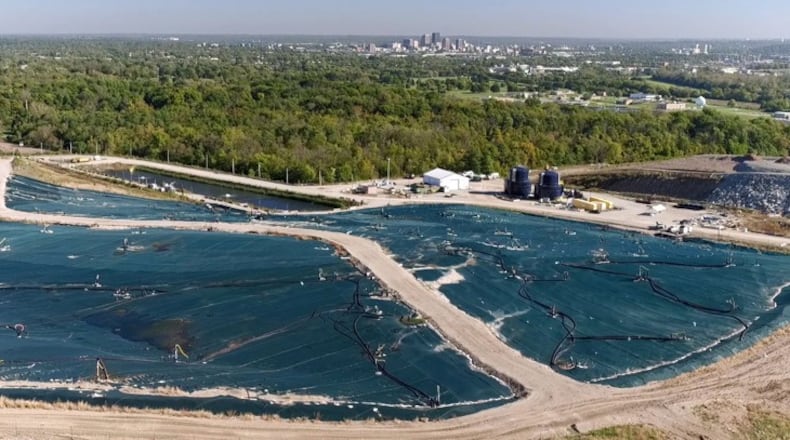“The monies received from the settlement will be dedicated to advance the city’s asset-development strategies in the Greater West Dayton area, including southwest and northwest land use areas,” said City Manager Shelley Dickstein.
The funds could be used for housing rehab and redevelopment, commercial corridor facade grants and for projects to adaptively reuse buildings, officials said. Other initiatives the settlement could fund include job creation, workforce development and neighborhood entrepreneurship.
MORE: Buy sex in Dayton, Facebook will blab
On Wednesday, Dayton city commissioners will decide whether to approve a settlement and mutual release agreement between the city and Waste Management.
Stony Hollow Landfill, located at 2460 S. Gettysburg Ave., is a subsidiary of Waste Management.
The settlement agreement calls for Waste Management to make two payments of $5.25 million each to the city to resolve a dispute that dates back more than 28 years, before Stony Hollow Landfill was built.
Half of the settlement will go into the West Dayton Development Fund, and the settlement money will help bring new investment to the city’s west side, officials said.
The agreement mutually resolves several legacy disputes on fee payments and refund claims, said Kathy Trent, a spokesperson with Waste Management.
The agreement also “creates several new requirements for the pre-treatment of Stony Hollow’s leachate and the transmission and disposal of the leachate at the city of Dayton Waste Water Treatment Plant, subject to all Ohio EPA and city requirements,” Trent said.
Waste Management wanted to build and operate a solid waste landfill within city limits, but its rezoning request for the project was denied. The company filed a federal lawsuit to try to force the rezoning.
In 1992, the city and company reached a settlement agreement and consent decree to allow the landfill project to move forward but that called for certain payments to the city.
MORE: Area employers targeting young workers to fill workforce needs
About a decade later, the city asserted that Waste Management failed to pay annual “county-generated” fees that were required when the company had a contract with Montgomery County to accept its solid waste. Waste Management disputed whether it owed the fees and claimed it was entitled to a refund for fees already paid.
In 2003, Waste Management lost its contract to handle Montgomery County’s residential trash, which was projected to cost the city of Dayton $1.6 million in lost fees in the first year alone. The case went inactive for about a dozen years.
But in 2017, the city filed a request to reinstate the case after learning that Waste Management had again won a contract to handle the county’s residential waste, court documents show.
The city learned about the contract from a zoning request related to Stony Hollow in 2015. The city asked the court to enforce its agreement and make Waste Management pay multiple years worth of county-generated fees.
Under the new proposed settlement agreement, the city will consider its county-generated fees paid in full and will not seek county-generated fees in the future. The agreement resolves Waste Management’s claims for refunds for past fees already paid.
Under the proposed agreement, Dickstein also agreed to recommend approval of Stony Hollow Landfill’s rezoning request related to nearly 29 acrees of land adjacent to the landfill. The landfill wants to rezone the property to light industrial from suburban residential to create a soil barrow and gravel operations.
Stony Hollow has agreed to put deed restrictions on the property to prevent it from being used for solid waste disposal in the future, city documents indicate.
After the city receives payment, the city and Waste Management will ask the court to approve a binding consent decree spelling out the terms of their settlement.
About the Author

